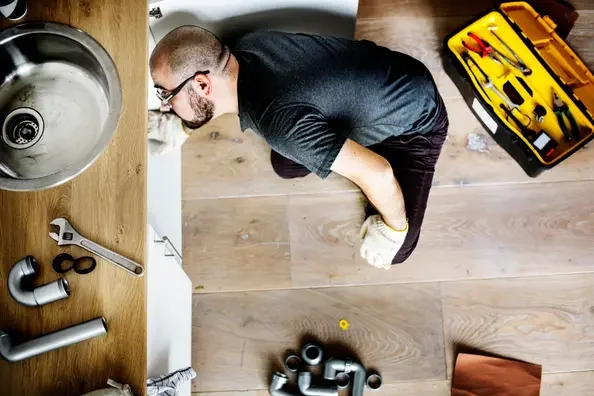Why DIY Drain Cleaning and Repair Often Makes Things Worse
When drains clog or pipes start acting up, many homeowners turn to do-it-yourself solutions in hopes of saving time and money. While it may seem like a simple fix, attempting to clean or repair your plumbing without proper tools or experience often leads to bigger, more expensive problems. DIY plumbing shortcuts can cause more harm than good, and understanding the risks can help you avoid costly repairs later.
Household Chemicals Can Damage Pipes
One of the most common DIY approaches involves pouring chemical drain cleaners into sinks or tubs. These products are marketed as quick fixes, but the harsh ingredients can corrode your pipes over time, especially in older plumbing systems. Repeated use can weaken pipe walls and create small cracks that eventually lead to leaks. What starts as a minor clog can result in long-term damage that requires full pipe replacement.
Improper Tools and Techniques
Professionals use specialized equipment to diagnose and resolve drain and pipe issues. Homeowners often rely on plungers, coat hangers, or makeshift tools that can scratch or puncture pipes. Without proper technique, these tools push blockages deeper or break up clogs unevenly, leaving debris behind that builds up again quickly. In some cases, the wrong method can make the clog worse or cause pipe joints to come loose.
Hidden Problems Go Unnoticed
Drain issues are often symptoms of bigger problems. Tree root intrusion, pipe misalignment, or grease buildup deep within the system can all lead to recurring clogs. DIY efforts might clear a portion of the blockage but fail to detect or address the root cause. This oversight means the problem is likely to return, potentially in a more severe form. A licensed plumber can inspect the system with cameras and locate issues that are invisible to the naked eye.
Water Damage and Mold Risk
When DIY repairs go wrong, they can lead to leaks or overflows. Water that escapes from a loose connection or cracked pipe may seep into floors, walls, or cabinets. These areas are difficult to dry and quickly become breeding grounds for mold. The resulting damage to flooring, drywall, and insulation adds significantly to your repair costs. A plumber not only prevents these outcomes but ensures repairs meet current safety standards.
Voiding Warranties and Building Code Violations
Many plumbing systems or fixtures come with warranties that are voided by unauthorized repairs. Additionally, some DIY solutions may not comply with local plumbing codes, especially when modifications are made without proper permits. This can create complications if you plan to sell your home, as unapproved work can lead to inspection failures or legal liability. Professional plumbers ensure all work is documented, approved, and up to code.
Relying on a licensed plumber saves time, reduces risk, and results in repairs that are safe and lasting. When it comes to drain cleaning and plumbing repairs, expert care is the most reliable investment in your home’s long-term health.ces risk, and results in repairs that are safe and lasting.
